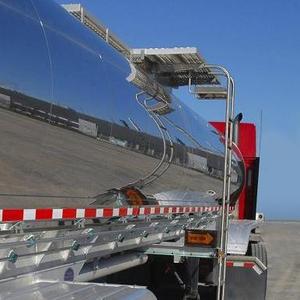California Fueling files suit over biodiesel NOx additive

January 3, 2019
BY California Fueling LLC
California Fueling LLC filed suit Dec. 10 in the Los Angeles Superior Court against Best Energy Solutions and Technology Corp., doing business as “Best Corp.,” asserting claims for, among other things, unfair business practices under California’s Business & Professions Code § 17200, et seq.
The complaint, which is captioned California Fueling, LLC. v. Best Energy Solutions and Technology Corp., dba “Best Corp.”, et sq., LASC Case No. 18STCV08474, alleges that Best Corp. and its distributor, Innopsec Inc., defrauded customers by claiming that Best’s BCEC1c additive reduced NOx emissions in biodiesel blends above the seasonal allowances, knowing full well that it did nothing of the sort.
The complaint describes how, after California Fueling discovered significant “red flags” in the process by which Best secured its certification for BC-EC1c, California Fueling commissioned an independent emissions study of BC-EC1c at Southwest Research Institute (SwRI). Using the same DDC Series 60 engine used for Best’s original certification testing, as well as three CARB reference fuels and two biodiesels, one containing BC-EC1c, SwRI conducted a comparative emissions study over a 12-day period. Attached to the complaint is SwRI’s report, as well as a full report detailing the methodology of the testing, which discovered that Best’s additive exhibited no improvement in NOx emissions when compared to the same B20 without BC-EC1c; and did not provide NOx mitigation as when evaluated versus three different CARB reference fuels, and in fact increased NOx emissions by more than 3 percent.
In light of the foregoing, the California Air Resources Board has opened its own investigation into Best’s claims that BC-EC1c reduces NOx.
Advertisement
California Fueling continues to recommend that NOX mitigant users take a “trust but verify” approach. That is why California Fueling stands by its product, Vesta, which is of known pedigree and performance.
Advertisement
Related Stories
The USDA has announced it will delay opening the first quarterly grant application window for FY 2026 REAP funding. The agency cited both an application backlog and the need to disincentivize solar projects as reasons for the delay.
Neste and DHL Express have strengthened their collaboration with the supply of 7,400 tons (9.5 million liters) of neat, i.e. unblended, Neste MY Sustainable Aviation Fuel to DHL Express at Singapore Changi Airport starting July 2025.
CoBank’s latest quarterly research report, released July 10, highlights current uncertainty around the implementation of three biofuel policies, RFS RVOs, small refinery exemptions (SREs) and the 45Z clean fuels production tax credit.
The U.S. Energy Information Administration maintained its forecast for 2025 and 2026 biodiesel, renewable diesel and sustainable aviation fuel (SAF) production in its latest Short-Term Energy Outlook, released July 8.
XCF Global Inc. on July 10 shared its strategic plan to invest close to $1 billion in developing a network of SAF production facilities, expanding its U.S. footprint, and advancing its international growth strategy.
Upcoming Events










